June 21, 2025 | 01:32 GMT +7
June 21, 2025 | 01:32 GMT +7
Hotline: 0913.378.918
June 21, 2025 | 01:32 GMT +7
Hotline: 0913.378.918
Last week, during the International Support Program (ISG) Plenary Conference 2022, experts emphasized the importance of inter-sectoral coordination and the engagement of the whole ecosystem, from producers to consumers, in order to construct a transparent, sustainable, and responsible food system.
Mr. Rémi Nono Womdim, the representative of the Food and Agriculture Organization of the United Nations (FAO) in Vietnam, indicated that the idea of a food system was complicated, needing participation from several sectors and cooperation from local and international units and organizations.
The modern food system focuses not only on hunger and poverty reduction but also on food safety and nutrient balance, which have received attention from the health industry.
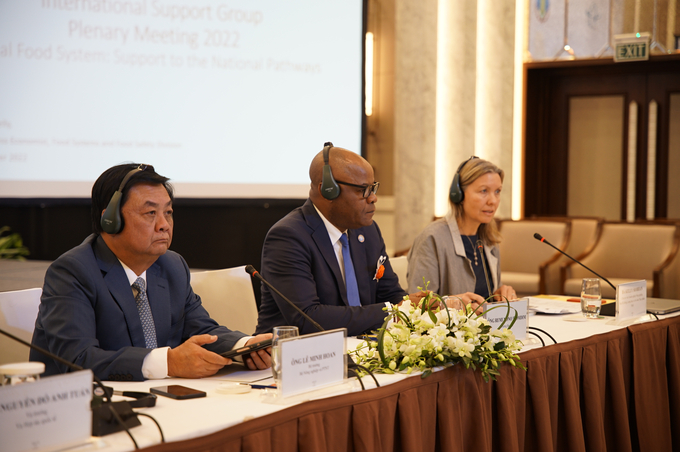
Minister of Agriculture and Rural Development Le Minh Hoan (left) and Mr. Rémi Nono Womdim, the representative of the Food and Agriculture Organization of the United Nations (FAO) in Vietnam. Photo: Dieu Linh.
Do Xuan Tuyen, Deputy Minister of Health, revealed that the Ministry of Health has examined and will present to the Government a proposal to change the project on food safety; this is a preliminary step toward implementing and bolstering the following steps to ensure food safety in the near future. In conjunction with the Committee for Ethnic Minority Affairs, Ministry of Agriculture and Rural Development, and Ministry of Labour, Invalids and Social Affairs to implement specific projects in three programs, including the New Countryside Building Program, the Sustainable Poverty Reduction Program, and the Socio-Economic Development Program for mountainous areas and ethnic minorities, the Ministry of Health has also had a project to review nutrition issues.
Specifically, the Ministry of Health develops initiatives to fight malnutrition in all age groups and in remote and disadvantaged communities. In addition, the Ministry tasked the Institute of Nutrition with advising on the establishment of a project to tailor nutrition to each age group, both to ensure the fight against malnutrition and obesity and to protect the public's health.
On behalf of the Ministry of Industry and Trade, Mr. Tran Quoc Toan, Deputy Director of the Agency of Foreign Trade, highlighted the importance of food safety information and communication with producers. In order for the manufacturer of a product to respond to market signals, the product must have traceability, assure food hygiene and safety, have a brand name and label, and fulfill the standards of the domestic or export market.
Toan stated, "We have provided information, communication, and advice to localities, enterprises, cooperatives, and producers regarding food safety and product requirements at the consumption and export stages." In recent years, the Ministry of Industry and Trade and the Ministry of Agriculture and Rural Development have routinely advised businesses to invest in cold storage for product preservation and deep processing, thereby creating favorable conditions for exports and meeting the food safety standards of international partners.
In addition, the Ministry of Industry and Trading has pushed the trade of agricultural goods and food on a digital platform, including e-commerce platforms, so that quality items with clear traceability may reach customers swiftly and securely.
According to him, cooperation between ministries, departments, and local authorities has been effective in recent years. Nonetheless, the importance of the local level must be highlighted, as it is the bridgehead that controls the manufacturing site and is responsible for linking the exporter and the distributor, as well as the producer and the origin of the value chain.
The history of food security involves land and water resources as well. Mr. Nguyen Trung Thang, a representative of the Ministry of Natural Resources and Environment, stated that the Ministry is amending the Land Law and adjusting the content of agricultural land use quotas, allowing for the flexible adjustment of agricultural land use and the incorporation of agricultural land into consolidating land for food production. Concerning water resources, the Ministry has produced a master plan on water resources according to river basins and updated the Water Resources Law, therefore contributing to the availability of sufficient water for agricultural output in general and food production in particular.
Minister of Agriculture and Rural Development Le Minh Hoan highlighted the phrase "Us together" while discussing the coordinating mechanism to restructure Vietnam's food system and the necessity of collaboration to transform the agriculture sector from a single sector to a multisectoral one. According to the director of Vietnam's agriculture industry, there is still a significant gap between theory and practice.
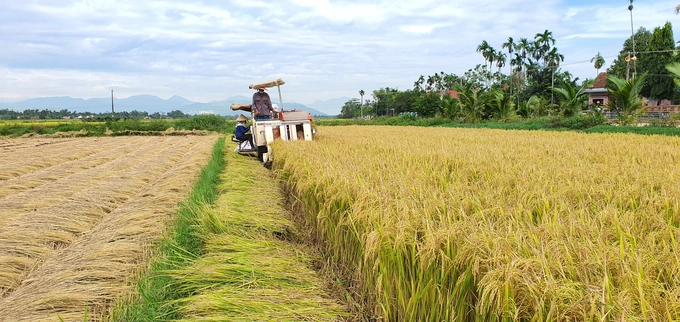
"The hardest part is raising communication and awareness, but with the simplest and most effective approach. How to make documents, information from forums and the sharing of professional knowledge on food safety and nutrition accessible to the general public in the simplest and most accessible language", the minister raise idea.
In addition to educating farmers, Minister Le Minh Hoan emphasized the need for coordination between stakeholders to prevent breaks in the food supply chain from farm to market to table. On the other way, customers are also the target of awareness-raising efforts. "The market will alter one day when customers become more demanding as they understand nutritional balance and traceability. From there, the supply will also shift, and producers that do not satisfy the market's demands at that time will not be accepted," stated Minister Le Minh Hoan.
Mr. Remi Nono Womdim, FAO Representative in Vietnam, further underlined the need for a collaborative effort and multi-party coordination. As the representative agency of the United Nations in the field of food in Vietnam, FAO will assist member nations, including Vietnam, in promoting frequent dialogues regarding the management of the food system. Mr. Womdim said that the promotion of programs and seminars is a priority of FAO's technical support in order to assist Vietnam in its successful food system transformation.
According to Mr. Womdim, FAO will have the opportunity to access the information and data of member countries at forums and conferences, thereby optimizing, maximizing, and capitalizing this knowledge, transforming it into a source of capital and a catalyst for the development of appropriate support programs and projects.
The FAO expert stated that collaboration between the agriculture, health, commerce, and environment sectors is crucial for the development of a sustainable food system.
Translated by Linh Linh
![Turning wind and rain into action: [10] Advancing accessible climate services for farmers](https://t.ex-cdn.com/nongnghiepmoitruong.vn/608w/files/linhnhp/2025/06/20/1911-z6704423696987_15fd32ffc26d590d204d520c9dac6786-nongnghiep-161854.jpg)
(VAN) Not only does it help farmers 'avoid droughts and rains,' the development of agricultural climate services also enhances their ability to proactively adapt to a rapidly changing climate.
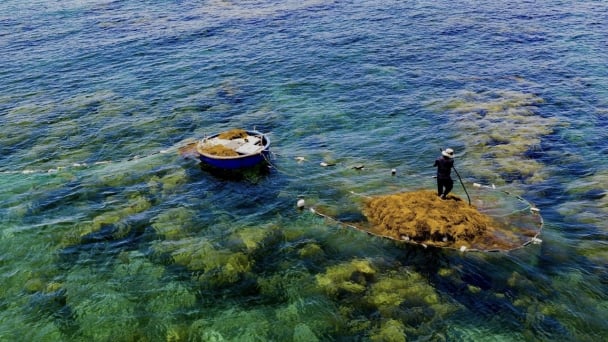
(VAN) With international assistance, the harvesting of sargassum seaweed in Quang Ngai has become increasingly regulated, thereby safeguarding marine life and ensuring the stability of coastal communities' livelihoods.
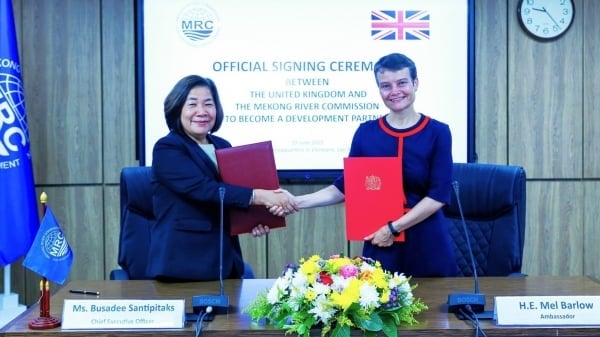
(VAN) On June 19, the United Kingdom officially became a Development Partner of the Mekong River Commission.

(VAN) Biodiversity is being threatened by traditional remedies made from wildlife. Traditional medicine and humans must change to live in harmony with nature.

(VAN) Agrifood investment and finance solutions for people and the planet.

(VAN) Microplastic contamination has become pervasive in seafood, posing unprecedented challenges for food safety and marine ecosystems.
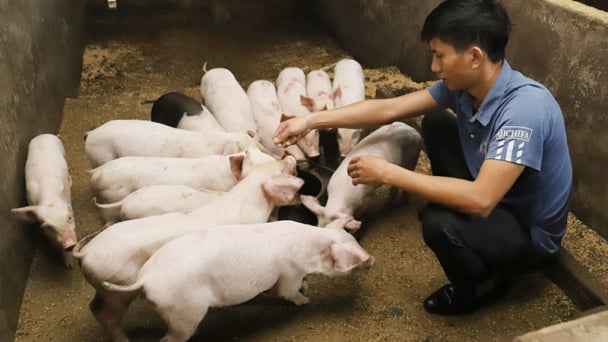
(VAN) Proactively using vaccines, combined with transport control and enhanced surveillance, is the only viable path toward biosecure and sustainable livestock production in Vietnam.